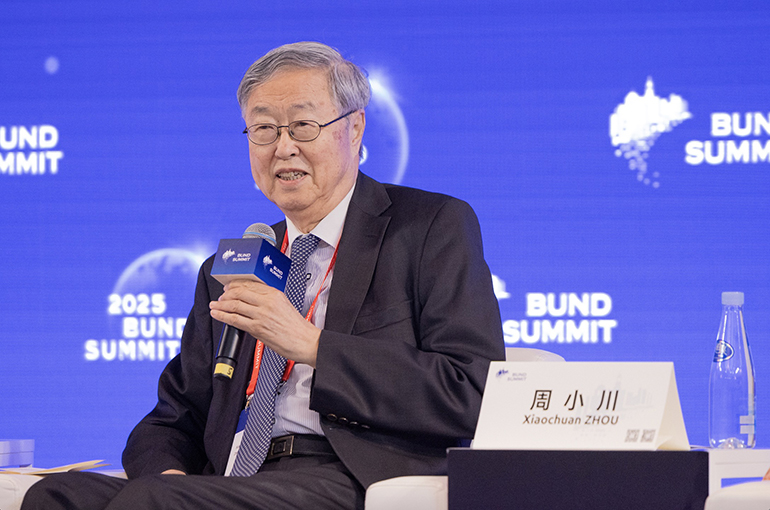Select Language:
Artificial intelligence technology is currently transforming the global financial landscape. Given the significant potential of these advancements, they are poised to fundamentally alter how banking and financial operations are conducted. However, caution is advised, as AI is not suitable for making monetary policy decisions.
As AI progresses, the relationship between humans and machines in finance is shifting from “human-led with machine support” to “machine-driven with humans functioning as customer interface,” explained Zhou Xiaochuan during a roundtable discussion on AI governance and international cooperation at the seventh Bund Summit in Shanghai, which continues through tomorrow.
The vast volume of data accumulated by financial institutions provides a robust foundation for deep learning applications. Banks are expected to increasingly depend on AI for payment processing, pricing, risk assessment, marketing, and other functions. This reliance could significantly impact employment within the industry, and customer interactions are likely to become more automated, with an increasing number of clients engaging directly with machines.
Zhou emphasized that AI will also revolutionize financial regulation. For instance, in anti-money laundering and counter-terrorist financing efforts, AI enables regulators to identify potential threats more efficiently. This shift could move away from outdated, manual detection methods toward more automated, effective regulatory systems.
Furthermore, AI holds immense promise for promoting financial stability. The sudden failures of banks like Silicon Valley Bank and Silvergate Bank revealed how traditional indicators sometimes fall short in providing timely warnings. AI models, capable of analyzing vast amounts of historical data, can help forecast, detect, and mitigate risks that threaten the financial system.
Since financial crises often develop abruptly after a period of buildup, predictive AI tools need to process both structured and unstructured data—including social sentiment and public opinion—to effectively identify looming threats.
Nevertheless, Zhou clarified that AI is not suited for setting monetary policy because such decisions depend on stable, ongoing data analysis and judgment—areas where human oversight remains essential. AI excels in processing high-frequency data but lacks the nuanced understanding necessary for policymaking decisions.






